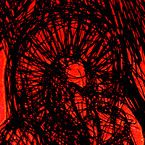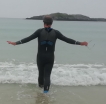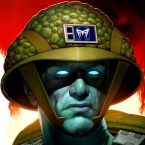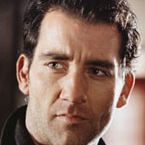warspite1
Posts: 41353
Joined: 2/2/2008
From: England
Status: offline

|
I finished The Villa, The Lake, The Meeting (Roseman).
A very good read - albeit not the one I was quite expecting. As one historian wrote "the most remarkable thing about the Wannsee Conference is that we do not know why it took place". The Wannsee Protocol (minutes) that survived are just a summary of the meeting rather than a proper record of what was said and by whom. My understanding has always been that this was the conference that decided the fate of the Jews of Europe and set in motion the Final Solution. But the truth is, that is almost certainly not the case. For one thing, as is argued by Roseman, the people present at the meeting were too junior in rank to agree such a thing.
Whilst not detracting from the quality of the book, the story is ultimately unsatisfying - not only for the obvious reason of the most terrible outcome - but because we will probably never now know exactly who ordered what and when.
By the time of Wannsee, Jews had been gassed at Chelmno since early December 1941, the Extermination camp at Belzec was already under construction, individuals were seemingly taking matters into their own hands (in the Balkans for example) and the Einsatzkommando in the Soviet Union were liberally murdering Jews and had been for months. Even after the conference, and as soon as the military situation allowed for transportation, there was much involvement in individual train loads by Himmler - and through him, Adolf Hitler.
Many of the documents needed to identify what exactly happened have been either destroyed - particularly around Heydrich's involvement - or perhaps never existed (given Hitler's wish to distance himself from written evidence linking him with genocide). Even where documents exist there is much contradictory evidence, euphemism and Hitler’s vitriolic speeches that may or may not have always meant what he actually said. At Nuremburg (and later Eichmann in Israel) of course those at the meeting who were still alive had every reason to be economical with the truth of what happened and their own involvement. Trying to piece together the evidence is difficult and so we don’t get that neat tidying up of all the loose ends with specific orders on specific dates that confirm xxxx is when the Final Solution began.
I suppose that we should not be surprised. We take on face value – because all WWII histories about the Nazis confirm and reinforce the fact - that Hitler operated a divide and rule policy and liked to play off departments and people against each other. Given that, why should we think that genocide would be any different.
But Roseman at least tries to provide the various strands of evidence in the chapters – Mein Kampf to Mass Murder and Mass Murder to Genocide - and so set the importance of the conference against what happened before (and indeed in the year after) the events of 20 January 1942. If Wannsee was not the meeting where the ‘Final Solution of the Jewish Question’ was actually finalised, its importance as a turning point in what came about is clear.
This is a book that paints a picture of how, on 20 January 1942, fifteen well-educated men (two thirds had a university degree and over half had the title doctor, mainly in law) came together to meet and, speaking to one another with great politeness, sipping their cognac, they cleared the way for genocide.
Chilling.
< Message edited by warspite1 -- 11/15/2017 9:44:54 PM >
_____________________________
England expects that every man will do his duty. Horatio Nelson October 1805  |
 Printable Version
Printable Version









 .
.













 New Messages
New Messages No New Messages
No New Messages Hot Topic w/ New Messages
Hot Topic w/ New Messages Hot Topic w/o New Messages
Hot Topic w/o New Messages Locked w/ New Messages
Locked w/ New Messages Locked w/o New Messages
Locked w/o New Messages Post New Thread
Post New Thread